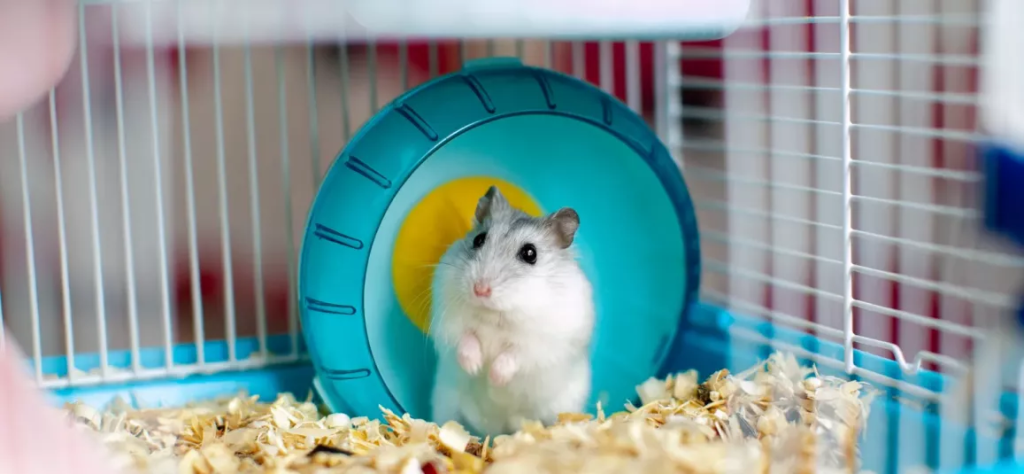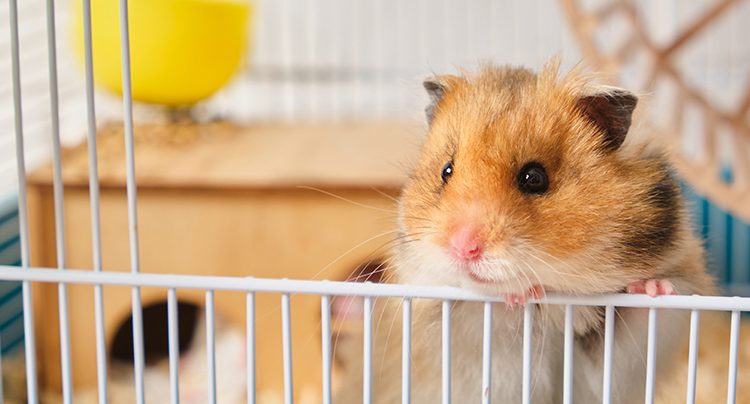Why Are Hamsters So Active at Night: Understanding the Nocturnal Activity of Our Small Friends
Hamsters are among the most popular pets, beloved for their cute appearance, low maintenance, and small size. However, those who decide to keep these little creatures are often surprised by their nocturnal activity. Why are hamsters so active at night? Let’s dive into the world of these adorable rodents to better understand their natural instincts and behavior.
Natural Instincts
Hamsters are nocturnal animals, meaning their natural activity cycles occur during the evening and nighttime hours. This behavior is rooted in the wild nature of hamsters, where the night provides an ideal time for foraging and avoiding daytime predators. Nighttime activity helps them stay safe from birds and other predators that hunt during the day.
Environmental Adaptation
In the wild, hamsters are adapted to living in harsh climates where daytime temperatures can be extremely high. The cooler nighttime temperatures offer them ideal conditions for active pursuits such as foraging, nest building, or territory exploration.
Physiological Aspects
Hamsters’ metabolism also contributes to their nocturnal activity. They have a high metabolic rate and need regular food intake, necessitating activity in search of food. Night provides an opportunity to do this without undue stress and danger.
Behavioral Factors
The nocturnal activity of hamsters is also linked to their behavioral characteristics. During the dark hours, they feel more confident and calm, allowing them to explore their environment more effectively, engage in nest building, and store food.
Social Interaction
Nighttime also serves as a time for social interactions among hamsters in the wild. Although most hamsters prefer a solitary life, night is when they may meet other hamsters for mating or interact on their territories.

Practical Tips for Owners
For hamster owners, it’s important to understand and respect the nocturnal lifestyle of their pets. Here are some tips on how to ensure comfort for your hamster without disrupting their natural activity cycles:
- Provide a quiet place for the cage. Place the cage away from noisy areas in your home to ensure daylight and daily activities do not disturb the hamster’s natural sleep and activity cycle.
- Create a suitable environment inside the cage. Ensure the cage has enough space for a running wheel, hiding spots, and play areas that allow the hamster to engage in its natural nighttime activities undisturbed.
- Avoid disturbing the hamster during the day. Since hamsters sleep most of the day, it’s important to avoid unnecessary disturbances and noise around the cage during this time to not interrupt their natural rest.
- Regulate feeding times. Try feeding your hamster in the evening as it becomes more active. This supports its natural rhythm and keeps it occupied at night.
- Provide plenty of toys and entertainment. Hamsters enjoy exploring and playing, so offer various toys, mazes, and running wheels to keep them busy and physically active throughout the night.
- Consider behavior characteristics. If your hamster is particularly noisy at night, additional steps may be needed for soundproofing or placing the cage in a more secluded part of the house.
Understanding and respecting hamsters’ natural nocturnal activity not only helps create a more natural and comfortable environment for them but also prevents many common issues with keeping these adorable rodents. Remember, each hamster is an individual with unique needs and behavioral traits, and the approach to each pet should be as attentive and personalized as possible.

